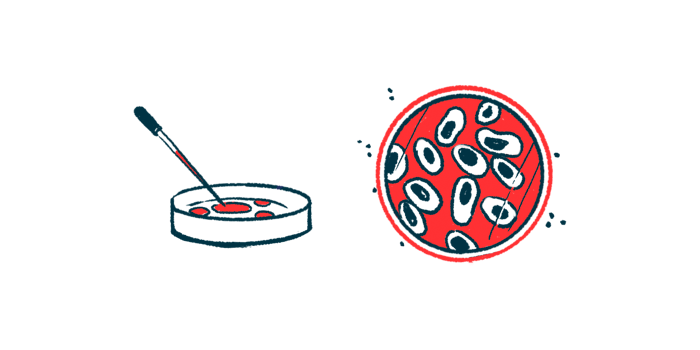Targeting Pathway With Ectoine May Help in Stabilizing CFTR Protein
Written by |

A natural compound called ectoine may help to improve the stability of the CFTR protein by modulating the activity of a molecular signaling pathway called AREG-EGFR-ERK, a study reported.
Ectoine is a stress-protection molecule with water-retaining and potentially anti-inflammatory properties. The researchers suggested that ectoine, given in combination with CFTR modulator therapy, may be beneficial for people with cystic fibrosis (CF).
The study, “Targeting the EGFR-ERK axis using the compatible solute ectoine to stabilize CFTR mutant F508del,” was published in The FASEB Journal.
CF is caused by mutations affecting the CFTR protein, which normally sits at the cell’s membrane and helps to regulate the movement of chloride ions and water in and out of cells. The most common CF-causing mutation, found in about 9 in every 10 patients, is called F508del.
CFTR modulators are a recently developed class of therapy that can improve the workings of the CFTR protein in people with specific mutations, including F508del. For these patients, existing modulators can help the mutated protein get to the cell’s surface and stabilize its function once there.
Even with modulator therapy, however, the CFTR protein degrades more rapidly than normal in people with this mutation, which ultimately contributes to poorer protein function.
“It is therefore envisioned that a triple-combination therapy targeting protein trafficking, ion channel conductance, and [cell] membrane stability will prove beneficial for patients with the F508del mutation,” the researchers wrote.
Prior research into the effects of cigarette smoke had indicated that a molecular signaling pathway called ERK-MAPK is involved in degrading the CFTR protein. Here, scientists at The Ohio State University conducted a series of experiments in cell models to learn more about these processes, with an eye toward potential therapeutic targets.
In initial tests, the researchers showed that the ERK pathway is overactive in CF cells. They also showed that blocking a receptor protein called EGFR also blocked ERK activity, suggesting this receptor’s activity drives the abnormal activity of ERK.
“EGFR signaling has previously been reported to be enhanced in CF,” the researchers noted.
Since EGFR drives ERK signaling and potentially CFTR degradation, the researchers reasoned that blocking EGFR might stop this protein from being degraded in patients. Further experiments showed that activating EGFR led to a decrease in CFTR levels, supporting the idea that this signaling pathway regulates CFTR degradation.
Treating cells harboring the F508del mutation with an EGFR inhibitor was seen to increase the function and expression of the CFTR protein. Co-treatment with this EGFR blocker and CFTR modulators also increased the production of the mature protein, compared to modulator therapy alone.
Within the body, the EGFR protein can be activated by several different signaling molecules. The researchers showed that one of these, called AREG, was present at unusually high levels in the CF models. Modifying cells so they made less AREG led to an increase in CFTR rescue with tezacaftor (VX-661), which is part of the combination modulator treatments Symdeko and Trikafta.
“We show that the EGFR/ERK axis is up-regulated in CF airway cells at least partially due to increased release of the EGFR ligand AREG. We also show that targeting this axis using specific inhibitors, or by modulating AREG expression, increased rescue and function of CFTR” in human airway cells harboring the F508del mutation, the scientists wrote.
A cellular compound called ectoine, which normally dampens EGFR signaling, was found to increase the expression and function of CFTR in cells with the F508del mutation. In cells treated with CFTR modulators, the addition of ectoine further increased CFTR activity. Ectoine also reduced the release of some pro-inflammatory signaling molecules from the cells, the researchers noted.
“Our results have identified AREG-EGFR-ERK signaling as an intrinsic regulator of CFTR in CF, and shown that … ectoine can target this pathway — resulting in increased CFTR stability in addition to its reported anti-inflammatory effects,” the scientists concluded.
“We suspect that ectoine, in combination with CFTR modulators, would benefit CF patients,” the researchers added. They stressed that further research is needed to test this idea.







